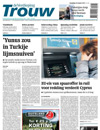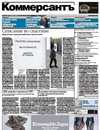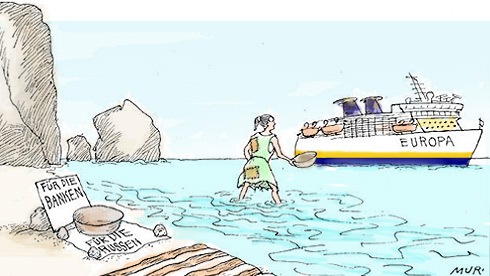The agreement reached on March 16 between Cyprus, Eurogroup and the IMF forecasts a 6.6 per cent tax on deposits of less than €100,000 and 9.9 per cent on those above that threshold. Blasted as “arbitrary,” an “expropriation” and even “hazardous”, the measure endangers the solidarity among the eurozone countries and even the free movement of capital within the EU, commentators point out.
Under the headline, “Europe botches another rescue,” the Financial Times slams the unexpected bank deposit tax, adding that “just as the eurozone had begun to set the right course in its struggle with an ever-mutating debt crisis, it relapsed into its old vice” —

However legal it may be, this rank violation of the spirit of deposit insurance – small savers in the EU are guaranteed that deposits up to €100,000 are safe regardless how moribund their bank – unforgivably betrays those with the most to lose and the least to answer for [...] Faced with a drowning member state, instead of throwing Cyprus a lifebuoy, leaders put a millstone around its neck. [...] The structure of Cypriot banks’ balance sheet meant some deposits had to be hit. But President Nicos Anastasiades’ claim that there is no alternative to the current plan is an insult to the small Cypriot saver or business owner. [...] The risks for Europe are as significant. [...] The biggest risk is political. The prescription of universal austerity combined with kid-gloves treatment of big investors in banks is increasingly toxic to European voters. Leaders have just added fuel to the fire.
Receive the best of European journalism straight to your inbox every Thursday
For the Lisbon daily Público, the bailout plan is nothing less than “embezzlement" by Eurogroup, which is accused of introducing confiscation and arbitrary practices into EU politics –

Once again, we were treated to the by now familiar words, 'there was no alternative'. Amongst all others, this was the least ‘painful’ solution. But the unspeakable rescue of Cyprus approved by Eurogroup ministers early on Saturday shows that the value of words in the European Union is now in sharp decline. Where once we had European citizens with rights, now we have citizens whose bank accounts may be taxed without warning, as happened in Cyprus. […] Arbitrary measures and the European Union's utter contempt for rules and values are increasingly apparent. This latest development will be remembered as a black day in Europe’s history. […] Democracy has been relativised, and blackmail has replaced solidarity. Words have changed. This is the real crisis of Europe.
“A levy on savings is good, but expropriating money from Cypriots may prove devastating,” writes Trouw. While understanding the outrage, the Amsterdam daily thinks the Cyprus tax authorities have been very a “friendly” haven for savings and the island appears to be a “popular destination for black money.” The idea of easing the island’s financial problems —

has much to recommend it. […] But the agreement that was reached this weekend in Brussels, comes down to expropriation. Savers have simply lost part of their money. This applies not only to rich Russians, but also to small Cypriot savers.
Milan daily Il Sole 24 Ore believes that tapping Cypriot accounts to finance a bailout will set “a dangerous precedent" that will undermine confidence. “What will happen now to freedom of capital movement in the EU?” wonders the paper —

Sure, the main contributor to the levy will be Russian capital, lured by a generous tax system [...] and a vague anti-money laundering law. But this isn’t enough to dispel doubts over a risky move that is bound to alarm savers, who are as timid as rabbits and as fast as hares, with an elephant's ability to never forget.
“A write-off to rescue,” sums up Kommersant in Moscow. By taxing bank deposits, “the EU has decided to save the Cypriot banking system by hitting on the Russian economy – without consulting Russia,” notes the paper, which estimates Russian assets in Cyprus to be about $20bn [€15.43bn] out of a total of $90bn [€69.46 bn].While President Vladimir Putin has called the bailout plan “unfair, unprofessional and dangerous”, Kommersant, however, believes that —

The Russian government has talked so much since 2011 about “de-offshorisation” of the Cypriot economy [that is to say, Moscow would like to repatriate back to Russia capital invested in countries like Cyprus] that it has no moral authority to condemn the most effective support for the government of Cyprus. [...] As the Russian Ministry of Finance has made the renewal of its credit to Cyprus conditional on the disclosure of information on those Russians who are doing well out of holdings in Cypriot companies, the hidden import of this “tax” is to preserve the status quo.
“No one can measure the consequences of this decision,” writes Le Monde, including “the possible contagion effect from the Cypriot plan” —

The Europeans and the IMF have taken the risk of boosting mistrust in the single currency. On Monday morning, the stock markets and the euro were both down. Care should be taken that investors in Spain, Portugal, Ireland, and Italy will not in turn withdraw their savings, which have become decidedly less secure in the banks.
In Germany, the Süddeutsche Zeitung calls this “attack on savings” the “last taboo to be broken” in the euro crisis —

Of course, the situation was complicated. Negotiations for a rescue package for Cyprus went on for nine months, and nobody wanted to budge. [...] Germany is the largest economy in the euro zone, which implies the biggest financial responsibility, and when in doubt, it will have to pay the most. Conversely, this does not mean that Berlin has more weight in decisions affecting the euro. Germany is just one country among the seventeen of the euro zone. The sums that France, Italy and Spain must pay are only a little lower than those paid by the Germans. But none of these countries has come up with the demand that little Cyprus be used as a trial run to test what happens when you break another taboo, and small savers are urged to pay up.
Was this article useful? If so we are delighted!
It is freely available because we believe that the right to free and independent information is essential for democracy. But this right is not guaranteed forever, and independence comes at a cost. We need your support in order to continue publishing independent, multilingual news for all Europeans.
Discover our subscription offers and their exclusive benefits and become a member of our community now!












